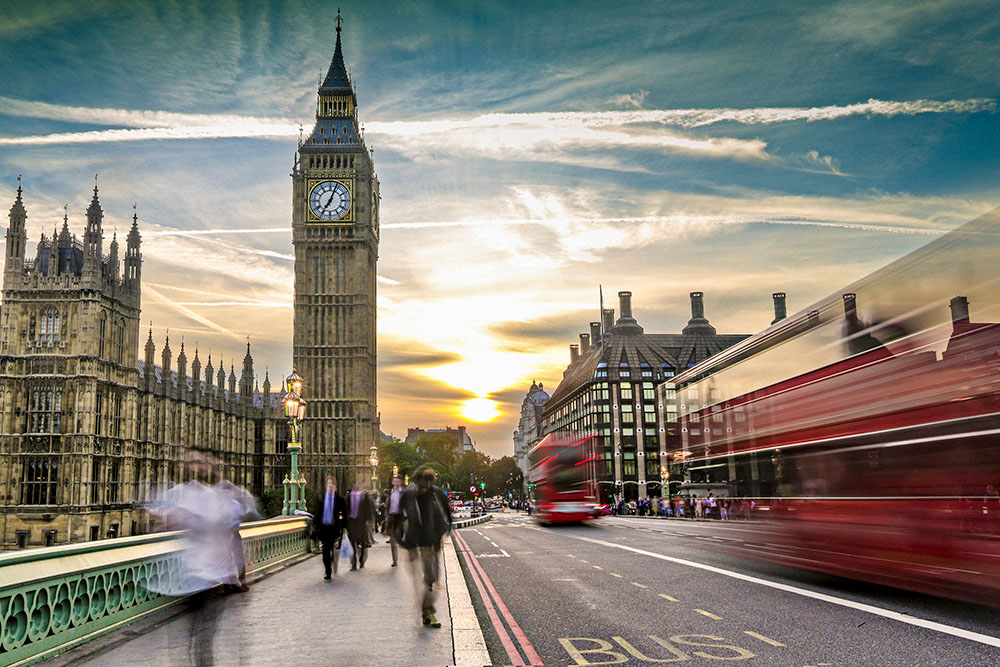What the Autumn Budget means for the logistics sector
04 Nov 24
Read more →

With the election now dominating the headlines, what impact will the current uncertainty have on the logistics sector? And what policies are both key parties offering to assist UK supply chains?
At 00:01 on 25 May, the pre-election period (also known as “purdah”) began. During this time, Ministers remained in office and in charge of their departments but they, government departments and other public bodies exercised strict discretion in making decisions and announcements while election campaigning takes place.
Between the election being called and Parliament being prorogued on 30 May, the government had to determine which bills to prioritise in a process known as the “wash-up.” Any primary legislation not passed before prorogation has now lapsed and will only return to Parliament if the next government decides to revive it.
The situation differs slightly for secondary legislation that was introduced but not yet passed, as it remains on hold, awaiting consideration by the next Parliament. For the logistics sector, the most significant impact is that changes to the Driver CPC rules, introduced in early May, have been paused until the new Parliament convenes.
With the table set for the general election, political parties have laid out their manifestos – offering a glimpse into their plans and priorities for the next parliamentary term. These documents outline the policies and initiatives that the key parties believe will best address the nation’s challenges and drive progress across various sectors; including logistics, transport and infrastructure.

In the foreword to the Conservative manifesto, leader and current Prime Minister Rishi Sunak emphasised the party’s commitment to restoring economic stability, cutting taxes and addressing future challenges to energy, security and the economy.
Key policies impacting logistics include:
Transport and infrastructure:
• Investing £36 billion in local roads, rail and buses, including £8.3 billion to fill potholes and resurface roads.
• Boosting rail connectivity in the North and Midlands through funding Northern Powerhouse Rail and the Midlands Rail Hub.
• Ensuring a nationwide EV charging infrastructure and delivering the Zero Emission Vehicle (ZEV) mandate.
• Supporting the decarbonisation of shipping and ports to drive down fares and provide more choice.
Economy, security and trade:
• Completing free trade agreements with India and the Gulf Cooperation Council and pursuing agreements with countries like Israel and Switzerland.
• Delivering a National Defence and Resilience Plan to enhance supply chain resilience.
• Improving public sector procurement to increase the proportion of locally produced food.
Energy:
• Developing new gas power stations and trebling the nation’s offshore wind capacity.
• Building the first two carbon capture and storage clusters.
• Approving new nuclear projects to ensure a stable and secure energy supply.
In the Labour Party’s manifesto, leader Keir Starmer emphasised the need for the government to address national security, secure borders and economic stability while fostering long-term partnerships with businesses for economic growth.
Key policies impacting logistics include:
Economy, security and trade:
• Improving the UK’s trade and investment relationship with the EU by reducing unnecessary barriers.
• Negotiating a veterinary agreement to prevent unnecessary border checks and reduce food costs.
• Establishing long-term business-government partnerships to ensure resilient supply chains.
• Investing £2.5 billion to rebuild the nation’s steel industry.
• Leading international efforts to modernize trade rules and agreements, including new strategic partnerships with India and African countries.
Transport and infrastructure:
• Developing a ten-year infrastructure strategy to guide investment and provide certainty for the private sector.
• Investing £1.8 billion to upgrade ports and build supply chains across the UK.
• Investing £1.5 billion to build new gigafactories to support the automotive industry.
• Accelerating the roll-out of EV charge points and restoring the phase-out date of 2030 for new internal combustion engine cars.
• Ensuring economic regulation supports growth, promotes competition and enables innovation in logistics.
Energy:
• Investing £1 billion to accelerate the deployment of carbon capture.
• Investing £500 million to support the manufacturing of green hydrogen.
• Working with the private sector to double onshore wind, triple solar power, and quadruple offshore wind by 2030.
• Creating a new publicly-owned company, Great British Energy, to partner with local authorities and co-operatives on clean power projects.

As the general election approaches, the logistics sector faces uncertainty. Both Conservative and Labour offer distinctively different visions for the future of the United Kingdom.
The key lies in providing robust support and infrastructure to keep UK businesses at the forefront of the global logistics industry. With our comprehensive supply chain software that includes a transport management system (TMS), warehouse management system (WMS) and electronic proof of delivery (ePOD) – TrackTrans is dedicated to helping our clients navigate any policy changes, ensuring seamless operations.
Try our free demo today and keep your business under control in an uncertain environment.
See how TrackTrans can be tailored to your business with no obligation. Simply complete the form and a member of our sales team will contact your directly.